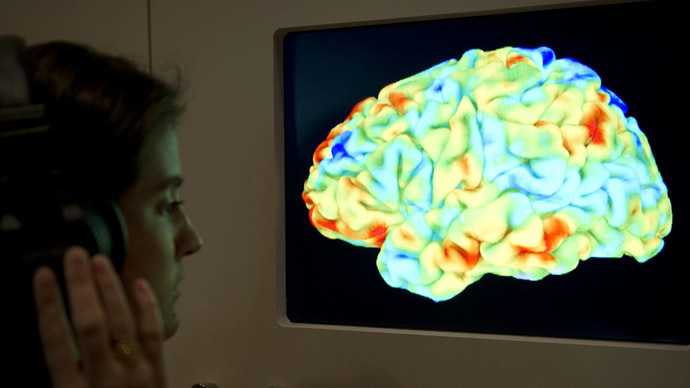Grey matter: Scientists find link between Alzheimer's and schizophrenia

British scientists have identified a weak spot in the human brain for Alzheimer's disease and schizophrenia, revealing a connection between the two diseases.
The Medical Research Council (MRC) team who carried out the study found the spot by conducting MRI brain scans on 484 healthy volunteers aged between eight and 85 years. They published their findings in the industry journal PNAS.
Researchers investigated how the brain naturally changes as people age and found that the area linked to the two diseases develops late in adolescence and degenerates early during ageing.
A common pattern emerged: the affected grey matter developed last and degenerated first, which is called neurodegeneration.
“Our results show that the same specific parts of the brain not only develop more slowly, but also degenerate faster than other parts,” said Dr Gwenaëlle Douaud of Oxford University, who led the study.
“These complex regions, which combine information coming from various senses, seem to be more vulnerable than the rest of the brain to both schizophrenia and Alzheimer's, even though these two diseases have different origins and appear at very different, almost opposite, times of life.”
However, the scientists said: “Much more research is needed into how to bring these exciting discoveries into the clinic.”
So far, doctors have difficulties predicting conclusively which people might develop either condition.
READ MORE:End of Alzheimer's? Doctors optimistic after breakthrough
Professor Hugh Perry, chairman of the MRC’s Neurosciences and Mental Health Board, which funded the research, said doctors in the past called schizophrenia a “premature dementia.”
Until this study, however, there has not been any evidence showing that the same parts of the brain could be “associated with two such different diseases.” This study reveals links between brain development, ageing and disease processes.
Perry said the study “raises important issues about possible genetic and environmental factors that may occur in early life and then have lifelong consequences. The more we can find out about these very difficult disorders, the closer we will come to helping sufferers and their families.”
This specific brain region – a network of nerve cells referred to as gray matter – co-ordinate 'high order' information from the different senses, such as sight and sound.
READ MORE:Over 100 genes linked to schizophrenia, study finds
Researchers found the same brain regions were affected in brain scans of both Alzheimer's disease and schizophrenia patients, therefore revealing a link between Alzheimer's and schizophrenia.
Scientists now claim it might be possible to develop means to prevent such brain degeneration.
Alzheimer’s gradually affects the memory and thinking ability of patients until in the last stages, the patient cannot even perform simple tasks of daily life, like eating.
“Schizophrenia can be potentially devastating but at the moment it's very difficult to predict with certainty who is going to have a good prognosis and who might have a poor one,” said Dr Michael Bloomfield of University College London.
“This study brings us a step closer to being able to make this prediction, so patients could in the future receive better targeted treatments,” he added.














